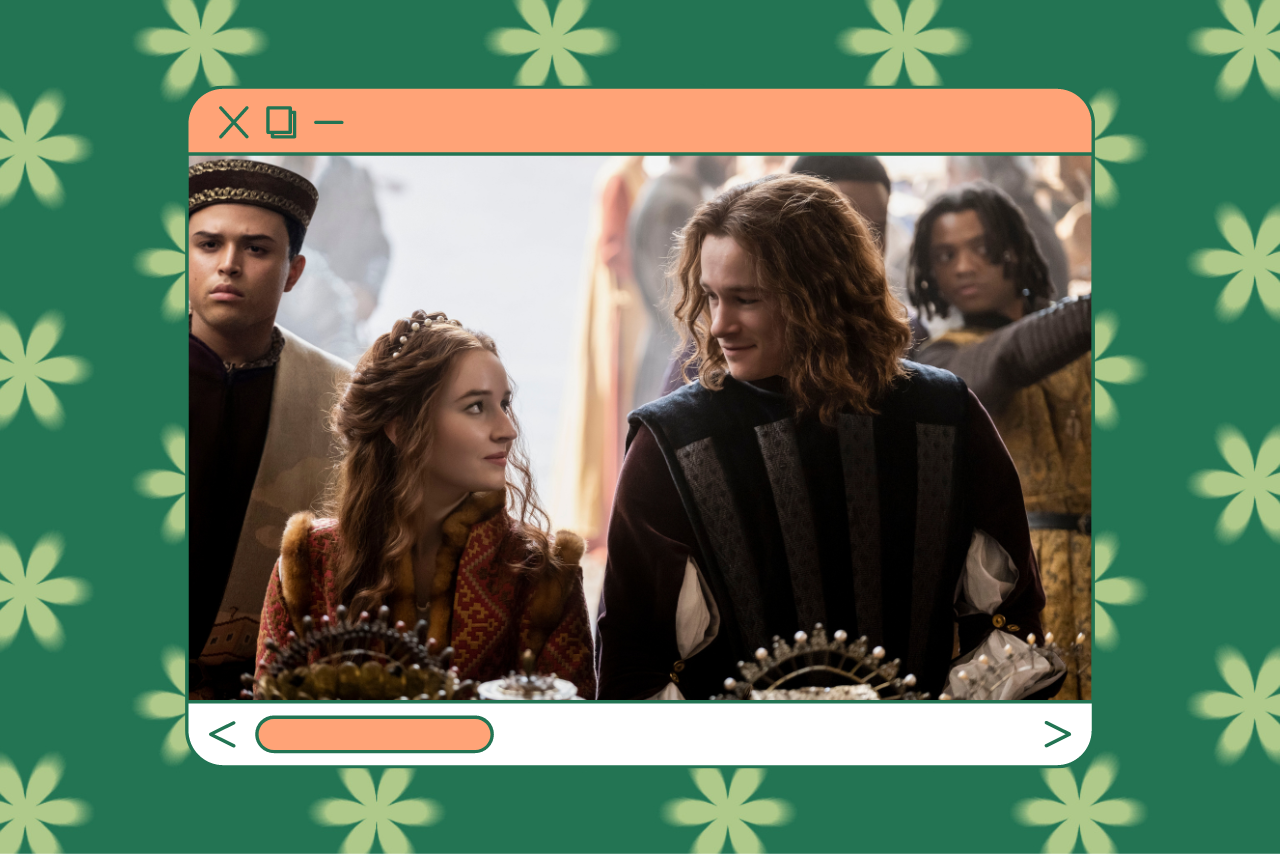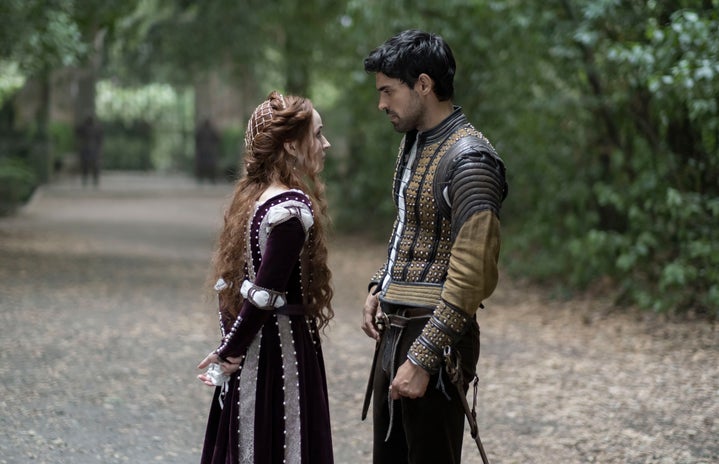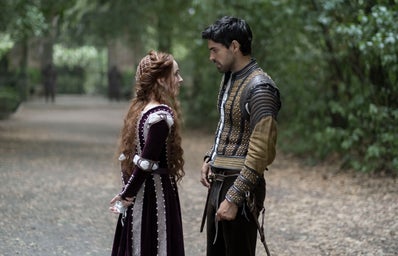In the 8th grade, my English teacher assigned us to read Romeo and Juliet by William Shakespeare. Our teacher made us do an activity where we stood in different corners of the room to determine whether we strongly agreed, agreed, disagreed, or strongly disagreed that love at first sight was real. I stood in the strongly disagreeing corner because I believed, and still do, that love at first sight is not love, but merely lust/adoration. Despite having never personally fallen in love, I think that love is an emotion based on trust, compassion, and understanding which should grow over time. After that activity, I frankly became disenchanted by the romance between Romeo and Juliet, as I characterized their love as mere young lovers infatuated with each other’s beauty.
When I saw an advertisement on Hulu for Rosaline, however, my interest was piqued in the play again and I watched the film. Honestly, it’s one of my favorite films of the year. Right from the beginning, the film mocks Romeo’s grand gestures and Petrarchan language with Rosaline asking why Romeo is speaking strangely — Petrarchan imagery was common in the period when Shakespeare was writing, often involving comparing religious and natural symbols to a woman’s cheeks, eyes, and hair. This depiction of Romeo’s superficial poetry as silly took me aback, and I wondered where the film was going.
In Shakespeare’s play, Romeo is woeful over Rosaline’s rejection of his love. Although not explicitly stated, it is implied that Rosaline’s reason for rejecting Romeo is because she has chosen to be celibate and become a nun. In the film, however, we see tension between the two arise because of Rosaline’s inability to say “I love you” back to Romeo when he tells her for the first time. They nevertheless plan on going to the Capulet ball together. The film then depicts other infamous scenes in modern language with current humor, such as the clash between Montague and Capulet’s servants at the beginning of the play, with Rosaline, a woman who dreams of becoming a cartographer and traveling the world.
As the film progresses, she is unable to go to the Capulet ball because of an arranged date by her father with a suitor, Dario. If you are a fan of the enemies-to-lovers trope, you’ll love Dario and Rosaline’s chemistry. Meanwhile, Romeo and Juliet meet and they immediately fall in love with her. The film presents their interaction traditionally, following the same dialogue as in the play. Rosaline, however, discovers Romeo’s betrayal and becomes heartbroken over him.

The film becomes a playful depiction of Rosaline trying to dissuade Juliet from being with Romeo as a way to get back with him. Through her failed trials and efforts, however, she slowly bonds with Dario and learns the distinction between falling in love and falling in love with the idea of love. Therefore highlighting once again the distinction between Petrarchan imagery and real love (based on words vs. based on actions). Rather than end the film on the tragic note of suicide, the film shows Romeo and Juliet merely feigning their deaths to live freely outside of Verona. The film humorously highlights the superficiality of Petrarchan emotion by ending with Romeo and Juliet awkwardly asking questions to get to know each other. Rosaline and Dario then walk together, explaining how they don’t care whether their story will be told or not in Romeo and Juliet’s tale.
By humorously illustrating the faults in rash love, yet also depicting a version of true love, Rosaline more explicitly highlights Shakespeare’s anti-Petrarchan theme within Romeo and Juliet. Rosaline gives a character, who is mentioned yet not even depicted within the play, agency, and depth through its adaptation of the tragedy into a comedy.


